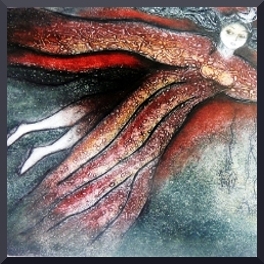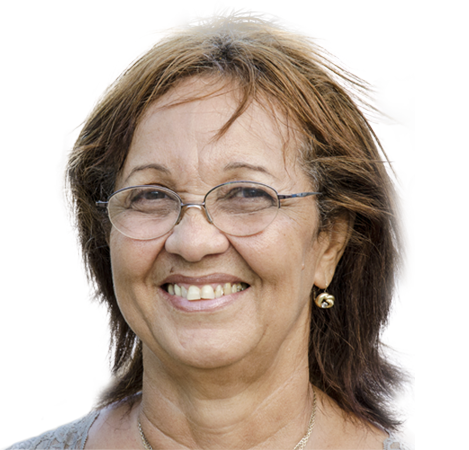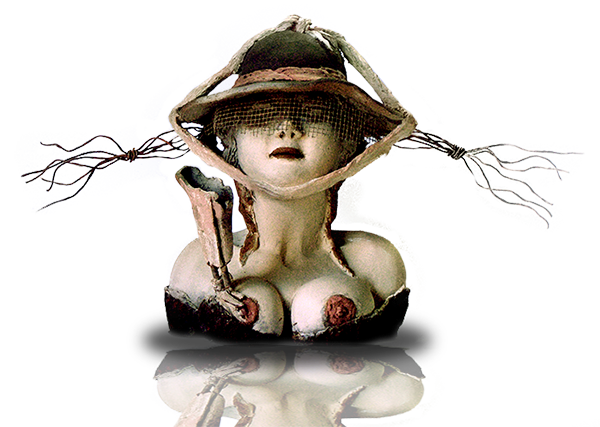

Women that fly
Art is, in its finest essence, a constant reflection, because it operates in reality as a means, not only of entertainment but also as a generator of questions about the human being in order to enrich them spiritually.
Women that fly, the current series of the artist Martha Jimenez, does not distance itself, as far as content, of its two last pictorial productions. The feminine theme and the controversial discussion about the value and the place that the woman occupies at the moment gain force in these paintings. It retakes symbols like the buffoons and the wings, that acquire new meanings in the current contexts. Although the preoccupation to approach the movement prevails, like essential idea in all the processes of its conceptual reality; also deals with the inexhaustible property of transformation that allows her to express the apparent diversity and contrast of the male gender. Thus she makes them mutant beings that in turn are men, birds and fish. It envelops us in a surreal world with very expressive traits. Underlie, throughout the work, ideas that allude to the game snd lets us spot jesters by juggling little stilts; as if we are standing in front of an interesting spectacle where there is only one main character: the woman.
There is an important element in the pieces, the presence of the island of Cuba, worked on the basis of the same patterns with which the plump woman is built, signs that alert us to the indissoluble unity between gender and space. In this way, our protagonist tries to fly, with small wings and on an island towards the Moon, for it, carries not only barriers of prejudice, no longer so insurmountable, but with the Sun that holds in her arms imprisoning the light and the hopes, symbol of her dream universe and at the same time real.
Facing these pieces involves enjoying the blends of ocher and the characteristic blur of her technique, while recognizing the necessary decoding of her signs and symbols in order to understand a discourse aimed at the defense of women from the woman, because it only depends on she wants to fly.
Auhor: Leydis Izaguirre Jerez.
February 2008.




